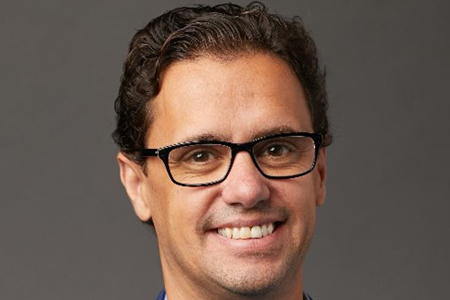NORD Expands Advocacy And Support For Rare Disease Patients, And Industry

By Ben Comer, Chief Editor, Life Science Leader

After nearly 41 years in operation, the National Organization for Rare Disorders (NORD) continues to push for regulations and incentives that speed up the development and commercialization of orphan drugs and new treatments for rare diseases, as well as policies and programs that improve diagnoses and access to therapies for patients. Now, the national nonprofit organization is expanding its efforts to reflect the evolving science of rare diseases and treatments — such as genome sequencing, and the emergence of cell and gene therapies — and is redoubling its focus on closing gaps in the rare disease patient journey.
NORD’s policy work is expanding at the state level, too, and the organization is keen to increase its engagement with rare disease drug developers in the biopharmaceutical industry. “We want industry to talk to us about issues they may be having, from a regulatory and payment perspective, to really anything that impacts getting therapies to market,” says Peter Saltonstall, president and CEO at NORD.
New And Expanding Programs For Rare Disease Patients

Two key initiatives NORD is currently expanding are worth describing in more detail. The first is NORD’s growing number of Rare Disease Advisory Councils (RDACs). RDACs are state-level groups comprised of rare disease stakeholders, including a mix of patients and caregivers, state government officials, healthcare providers, biopharmaceutical companies, researchers, and patient advocates. Due to the complex needs of rare disease patients — and the many differences in need across different rare diseases — RDACs were created to help state-level policymakers make informed decisions about drug and diagnostic coverage in health insurance plans (such as state Medicaid plans), and to help patients and families overcome obstacles related to the diagnosis and treatment of rare diseases.
The first RDAC was created in North Carolina in 2015. As of February 2024, there are 27 RDACs in 27 states. NORD, through Project RDAC, is building coalitions of rare disease advocates and providing resources to support the creation of RDACs in every U.S. state. Last year, the Minnesota RDAC gathered support from patient organizations in the state and worked with Rep. Liz Reyer to secure passage of a law (via the Minnesota State Budget) that improves access to services related to the diagnosis, monitoring, and treatment of a rare disease by requiring prior authorization parity between in-network and out-of-network care, reimbursement for out-of-network providers in Minnesota, and reimbursement for out-of-network providers outside the state, according to NORD. The law took effect on January 1, 2024.
NORD, as a national organization, also helps state-level RDACs identify issues of concern for rare disease patients. Last year for example, NORD helped connect the Colorado RDAC with Colorado’s Prescription Drug Affordability Review Board and Advisory Council, or PDAB, which was conducting an affordability review on Trikafta, Vertex’s cystic fibrosis drug approved in 2019. The PDAB ultimately decided not to impose price limits on Trikafta, a decision patients supported over concerns that limiting a drug price in the state would lead to drug companies declining to sell products in Colorado, among other concerns. State RDACs are seeking to join or consult with other state PDABs (in Maryland, for example) as well.
A second key initiative is NORD’s Rare Disease Centers of Excellence (COEs), a network of over 40 hospitals and medical institutions in 26 states focused on closing gaps in research, diagnosis, and treatment of rare diseases. “We recognize that a lot of the new, cutting-edge work is coming from small biotechs working with academic centers, which is one of the reasons that NORD built out our Centers of Excellence networks,” says Saltonstall. NORD’s COEs work with major academic medical centers under a contractual agreement. “For us, it’s critically important to stay actively engaged in that part of the market, to be able to advise those companies, and to work with academic researchers.” Saltonstall says that NORD’s COEs are currently covering about 90% of the U.S. population. “We made it clear that we want the centers to utilize their referral networks and their primary care physicians that are out in the communities.”
To help engage providers working in rural or community practices, NORD is developing an app for use in the COEs that will allow doctors in outlying communities to contact medical centers with questions about diagnosing and treating patients with rare diseases. Questions sent to a COE by community physicians via the app can be answered by the COE and medical institution. If personnel at an individual COE don’t have an answer, the app can be used to push the question out to the broader COE network, to help a community physician make a rare disease diagnosis, for example. “It’s important to get out to the broader community where the primary care doctors don’t have a lot of experience in rare diseases,” says Saltonstall. “With the app, if they see a patient and need a question answered, they can reach out directly to the COE.”
Supporting The Biopharma Industry

“I’m a business guy,” says Saltonstall, who acknowledged that NORD’s relationship with the biopharmaceutical industry was not very strong prior to 2008. “Our founder felt like industry was the enemy, that they were greedy, and out for themselves more than anything," he says. "I recognized that patient advocacy is a really important part of what NORD does, but we don’t develop therapies. Companies develop therapies.”
In 2021, Takeda began working with NORD to address gaps in the treatment of rare diseases, particularly related to health equity and the “diagnostic odyssey” many patients unfortunately find themselves on, says Antonio Melo, VP, franchise lead, hereditary angioedema, at Takeda. In October, Takeda and NORD released a new report outlining four high-impact opportunities to improve rare disease research and patient care. “We saw that there was a congruent alignment on goals between the two parties, and we partnered with NORD on the report to bring those initiatives forward,” says Melo. NORD shares Takeda’s goals of “improving standards of care for rare diseases, accelerating the diagnostic journey, and removing barriers to drug access,” he says.
With a growing number of states creating PDABs, perennial attempts to tweak the Orphan Drug Act (“If it ain’t broke, don’t fix it,” says Saltonstall), and IRA rules that, if implemented, could reduce development efforts on drugs with more than one FDA orphan designation (NORD is currently advocating against this IRA provision), among many other issues, NORD has a full policy agenda in 2024. For rare disease patients, it’s an exciting time for scientific discovery and new drug development. Protecting incentives for the discovery and development of rare disease treatments, and policymaking that promotes better access to diagnostics and therapeutics for rare disease patients, are issues where NORD and biopharmaceutical manufacturers can find plenty of common ground. For small biotech companies, NORD welcomes communication and engagement about “the value of what NORD can bring, our connection to the patient community, and our experience in the marketplace to help educate biotech leaders,” says Saltonstall.
